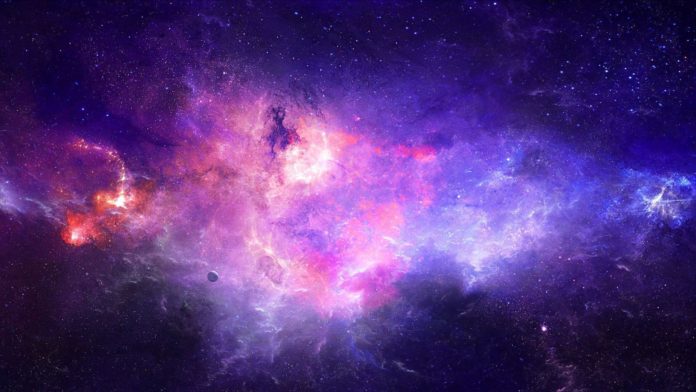It’s an exciting time for astronomers at the moment as they continue to celebrate a record breaking observation of the magnetic field of a galaxy that’s situated 5 billion light years away. Never before has this been observed and provides a fantastic insight into magnetism and its role in the formation and evolution of the Universe.
From the observation, astronomers can see that there’s a magnetic field similar to our own even though the galaxy in question is around five billion years younger. This proves that galactic magnetic fields form early on in a galaxy’s existence and remain pretty stable throughout. Dr. Sui Ann Mao is an astronomer and Minerva Research Group leader at the Max Planck Institute for Radio Astronomy and lead author of the paper. “This find is exciting. It is now the record holder of the most distant galaxy for which we have this magnetic field information,” says Mao.
Galaxies’ magnetic fields are so much weaker than the Earth’s. One theory behind this is that a young galaxy starts with a weak magnetic field that gradually becomes stronger over time. “Magnetism is generated very early in a galaxy’s life by natural processes, and thus that almost every heavenly body is magnetic,” says Professor Bryan Gaensler, Dunlap Institute for Astronomy & Astrophysics, University of Toronto, and co-author of the paper.
In order to understand magnetism we first need to understand the Universe, says Gaensler. Various observations are required in order to get a true picture of the evolution of galactic magnetic fields. The problem is that these observations are difficult to make and astronomers have to rely heavily on detecting the magnetic fingerprint the field leaves on light as it passes through and is an effect known as Faraday Rotation.
The team made their observation using the Karl G. Jansky Very Large Array radio telescope in the New Mexico desert. “Nobody knows where cosmic magnetism comes from or how it was generated,” said Gaensler. “But now, we have obtained a major clue needed for solving this mystery, by extracting the fossil record of magnetism in a galaxy billions of years before the present day.”
More News to Read
- Meet the Engineer Who 3D Prints Revolutionary Human-Robotic Arms
- Meteor Shower From Dead Comet Sighted Again
- Will Tesla 3 Pre-orders See the Light of Day and Will This Car Create…
- Future NASA Study Will Focus on the Ocean Worlds of the Milky Way
- Quantum Computer Programming: What You Need to Learn to Get Started?

